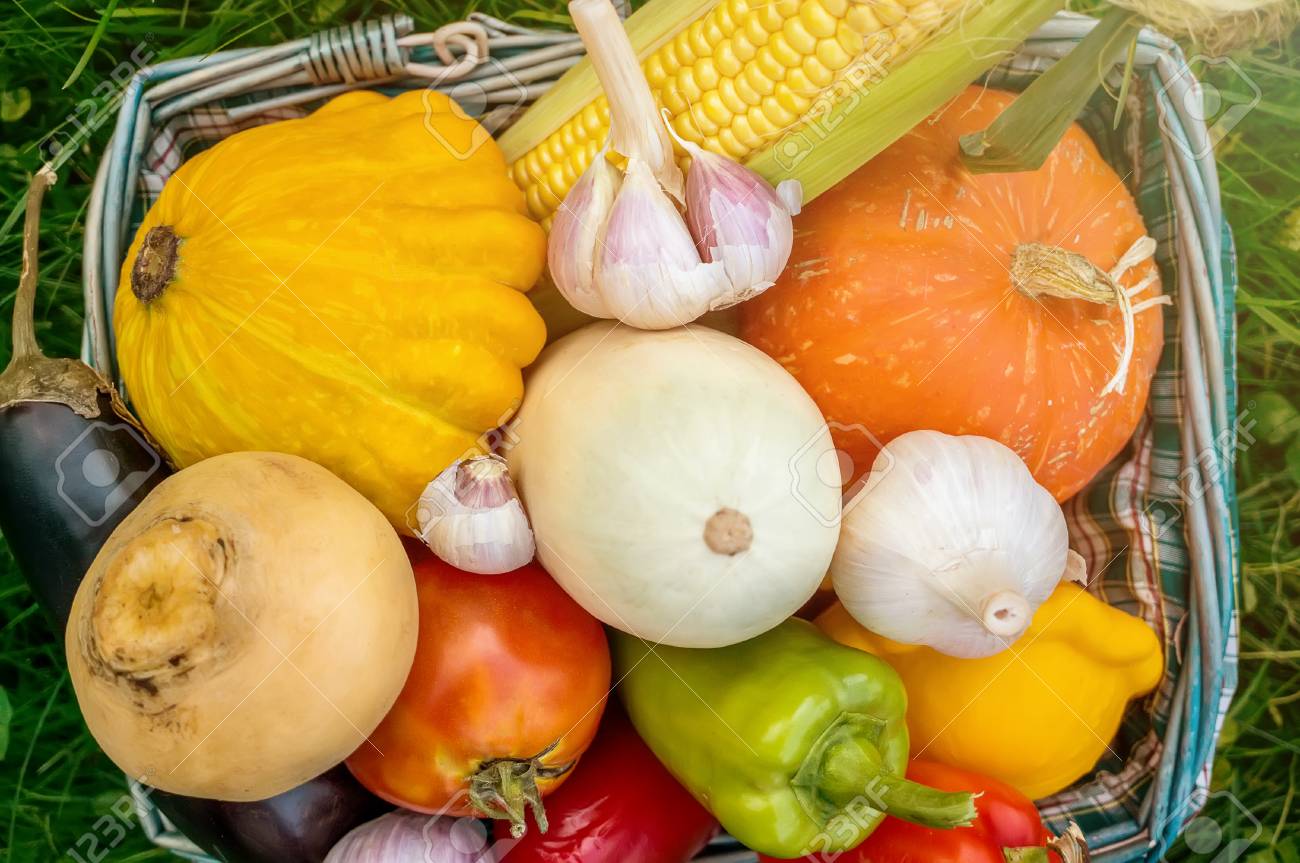Harvest for Health

by Tami Mungenast CPT CNWC
The late summer produce that is harvesting locally is not only delicious and fresh but can yield a large array of health properties. It is well proven that a diet rich in plant based foods helps lower risks of many chronic diseases. Lets take a closer look at some of the health benefits of eating a few of the most popular produce from the local late summer harvest.
Cucumbers– Cucumbers are part of the squash and melon family. They are high in water (hydration) and low in calories. Cucumbers have a mild flavor and can be used in salads, whole and even juiced. Some health properties of cucumbers are:
•Improved Hydration- consisting mostly of water cucumbers contain important electrolytes.
•Bone Health- a good source of Vitamin K which helps calcium uptake which helps improve bone health.
•Cancer prevention-cucumbers contain high levels of nutrients (cucurbitacins) that are thought to precent cancer by stopping the proliferation of cancer cells.
•Cardiovascual Health- Cukes are a good source of fiber which help improve overall lipid health reducing risk for cardiovascular problems. They also provide good sources of magnesium and potassium to help blood pressure.
Summer Squash and Zucchini- Summer squash and zucchini are members of the gourd family. They come in a variety of sizes shapes and colors and can be used in a variety of recipes and soups. They are low in calorie and carbs but rich in nutrients such as vitamin C, vitamin B6, and vitamin A. manganese, riboflavin, and potassium. Some health benefits from these late summer favorites are:
•Immune System Health and Anti Aging- The vitamin C in the squash provides 57 percent of your daily needs in a 100-gram serving. Vitamin C is a water-soluble vitamin that is important in boosting immunity, repairing cells, and slowing down the aging process.
•Metabolism of food- Vitamin B6 is important in protein metabolism. Riboflavin is important in the metabolism of carbohydrate, protein, and fat. Manganese is a mineral that is important in many metabolic pathways including gluconeogenesis, which is the production of glucose from non-carbohydrate precursors, as well as bone, and cartilage formation.
•Eye health- Summer squash also contains a fair amount of carotenoids, lutein, and zeaxanthin, which can help protect us from some age-related eye conditions.
Tomatoes- It was only 200 years ago that tomatoes were thought to be poisonous in the United States (U.S.) This is likely to be because the plant belongs to the toxic nightshade family. Now tomatoes are the 4th most popular farm market produce. Despite botanically being a fruit, it’s generally eaten and prepared like a vegetable. Tomatoes are great fresh especially when in season locally! They can be used in sauces, salads and a variety of dishes and entrees. Tomatoes are rich in vitamins A (as beta-carotene), C, K, and various B vitamins. Tomatoes are also rich in fiber as well as minerals like potassium, manganese, magnesium, chromium, and copper but the main health benefits come from a phytonutrient called Lycopene.
Health benefits are:
•Lowers cancer risk- Tomatoes contain antioxidants that target free radicals and oxidative stress contributing to cancerous tumor growth. Lycopene is a notable, well researched antioxidant present in tomatoes that is linked to preventing colon, prostate, and even lung cancer.
•Decreases stroke risk-Blood clotting should occur when needed, but excessive blood clotting leads to a snowball-effect resulting in arterial damage and stroke. 75% of people older 65 years old experience a stroke in their time. Luckily, lycopene has anti-inflammatory and anti-clotting properties to prevent and digest plaque build up.
•Maintains glucose levels- Prolonged blood sugar levels hurt major organs such as the brain and kidneys. If you’re battling diabetes, eating more tomatoes is a great way to incorporate more low glycemic foods to your diet to stabilize high blood glucose.
•Strengthens your mental health- Daily ingestion of tomatoes is associated with treating depression and Alzheimer disease. In a prospective study, researchers listed tomatoes as a beneficial fruit to enhance the nutritional diversity of your diet. Tomatoes add vitamins B and E, which can limit neural degeneration.
•Good for eye health -Beta-carotene and lycopene are readily available in tomatoes and serve a dual function as an antioxidant and vitamin A precursor. These carotenoids aid in the filtration of harmful light entering the eyes.
•Prevents Anemia- Tomatoes can also protect against anemia. The high amount of vitamin C in tomatoes is essential for the absorption of iron. Not to mention, consuming up to one cup of sun dried tomatoes provides you with ⅓ of your daily recommended iron intake.
We are fortunate to have so many healthy options when seeking fresh produce. Local produce is always the freshest! Shop local whenever possible. Be sure to check out the print editions of Greece News and Suburban News for local growers and farm markets.



